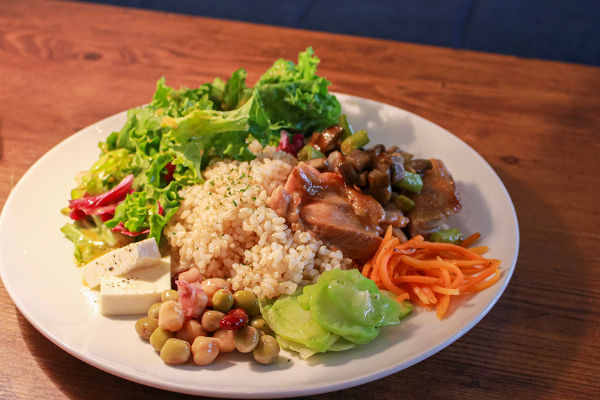Eating healthy doesn’t have to break the bank. With a little planning, creativity, and smart shopping, it’s possible to nourish your body and mind without spending a fortune. In this article, we’ll explore practical tips for maintaining a nutritious diet on a limited budget, helping you make the most of your grocery dollars while prioritizing your health and well-being.
Making the Most of Your Grocery Budget: Budget-Friendly Tips
Stretching your grocery budget doesn’t mean sacrificing nutrition. By following these budget-friendly tips, you can make every dollar count when it comes to buying healthy foods:
- Plan Ahead: Take some time to plan your meals for the week, making a list of ingredients you’ll need before heading to the store. Planning ahead can help you avoid impulse purchases and reduce food waste.
- Buy in Bulk: Purchasing items like grains, beans, and nuts in bulk can save you money in the long run. Look for bulk bins at your local grocery store or consider joining a wholesale club for additional savings.
- Shop Seasonally: Choose fruits and vegetables that are in season, as they tend to be more affordable and flavorful. You can also buy in-season produce in bulk and freeze or preserve it for later use.
- Compare Prices: Don’t be afraid to compare prices between different brands and stores. Sometimes, generic or store-brand items can be just as nutritious as their name-brand counterparts at a lower cost.
- Use Coupons and Discounts: Keep an eye out for coupons, sales, and discounts on healthy foods. Many grocery stores offer loyalty programs or digital coupons that can help you save money on your purchases.
Creating Balanced Meals: Nutritious and Affordable Options
Eating healthy on a budget is all about making smart choices and prioritizing nutrient-rich foods. Here are some affordable staples to include in your diet:
- Whole Grains: Opt for budget-friendly whole grains like brown rice, quinoa, oats, and whole wheat pasta. These foods are high in fiber and essential nutrients, providing sustained energy and promoting digestive health.
- Beans and Legumes: Beans, lentils, and chickpeas are inexpensive sources of protein, fiber, and micronutrients. They can be used in a variety of dishes, including soups, stews, salads, and burritos, adding flavor and texture to your meals.
- Frozen Fruits and Vegetables: Frozen fruits and vegetables are often more affordable than fresh varieties and retain their nutritional value. Stock up on frozen produce to add to smoothies, stir-fries, and casseroles for a convenient and budget-friendly boost of vitamins and minerals.
- Canned Goods: Canned foods like tomatoes, beans, and tuna can be budget-friendly pantry staples. Look for options with no added salt or sugar and rinse canned beans before using them to reduce sodium content.
- Eggs: Eggs are a versatile and budget-friendly source of high-quality protein, vitamins, and minerals. Incorporate eggs into your meals by making omelets, frittatas, or egg sandwiches, or use them as a protein-packed topping for salads and grain bowls.
FAQs (Frequently Asked Questions)
- Is it possible to eat healthy on a limited budget? Yes, it is possible to eat healthy on a limited budget with proper planning and smart shopping strategies. By prioritizing nutrient-rich foods and making strategic choices, you can nourish your body without breaking the bank.
- What are some affordable sources of protein for a budget-friendly diet? Affordable sources of protein include beans, lentils, tofu, canned fish, eggs, and Greek yogurt. These foods are not only budget-friendly but also versatile and nutritious.
- How can I save money on fresh produce? To save money on fresh produce, shop seasonally, buy in bulk, and look for sales and discounts at your local grocery store. You can also consider joining a community-supported agriculture (CSA) program or visiting farmers’ markets for affordable, locally grown produce.
- Are frozen fruits and vegetables as nutritious as fresh ones? Yes, frozen fruits and vegetables are often just as nutritious as fresh ones, as they are typically picked and frozen at peak ripeness. Frozen produce is also convenient and can be more affordable, making it a budget-friendly option for incorporating more fruits and vegetables into your diet.
- How can I avoid food waste when eating on a budget? To avoid food waste, plan your meals ahead of time, buy only what you need, and store perishable items properly to prolong their freshness. You can also repurpose leftovers into new meals or freeze them for later use.

